Famous English poets have left an indelible mark on literature and continue to be celebrated and studied today. From William Shakespeare to Robert Frost, these poets have created works that have stood the test of time and continue to be read and enjoyed by people of all ages.
The purpose of this blog post is to provide an overview of some of the most famous poets in English and their works. We will delve into the biographies, poetry and famous quotes of these literary giants and explore what makes them so enduring and beloved. Whether you are a student of literature, a poetry enthusiast, or simply someone who appreciates the beauty and power of words, this post will provide an engaging and informative look at some of the greatest poets in the English language.
List of Famous English Poets
William Shakespeare

William Shakespeare is widely considered to be one of the greatest poets and playwrights in the English language. Born in 1564 in Stratford-upon-Avon, England, Shakespeare’s works have been performed and studied for centuries. His plays and poetry are known for their complexity, beauty, and timeless themes.
Biography
Shakespeare’s early life is shrouded in mystery, but it is believed that he was the son of a successful merchant and grew up in a small town in England. He likely attended grammar school, where he would have studied Latin and the classics. In his late teens or early twenties, he moved to London and began working as an actor and playwright. By the early 1590s, he had established himself as a successful playwright and began writing some of his most famous works, including “Romeo and Juliet,” “Hamlet,” and “King Lear.” He died in 1616 at the age of 52.
Overview of his poetry
Shakespeare is known for his plays, but he also wrote a significant amount of poetry. His poetry is known for its complexity, its use of metaphor, and its ability to convey deep emotions. His sonnets, for example, are famous for their exploration of love, beauty, and the passage of time. He also wrote narrative poems such as “Venus and Adonis” and “The Rape of Lucrece.”
Famous works and quotes
Some of Shakespeare’s most famous plays include “Romeo and Juliet,” “Hamlet,” “Macbeth,” “Othello,” “King Lear,” and “The Tempest.” He is also famous for his sonnets, including Sonnet 18 “Shall I compare thee to a summer’s day?” and Sonnet 116 “Let me not to the marriage of true minds.” Shakespeare is also known for his memorable quotes such as “To be or not to be,” “All the world’s a stage,” and “To thine own self be true.”
Shakespeare continues to be a major influence on literature and culture. His plays and poetry are still widely performed and studied, and his works continue to resonate with audiences and readers today.
John Milton
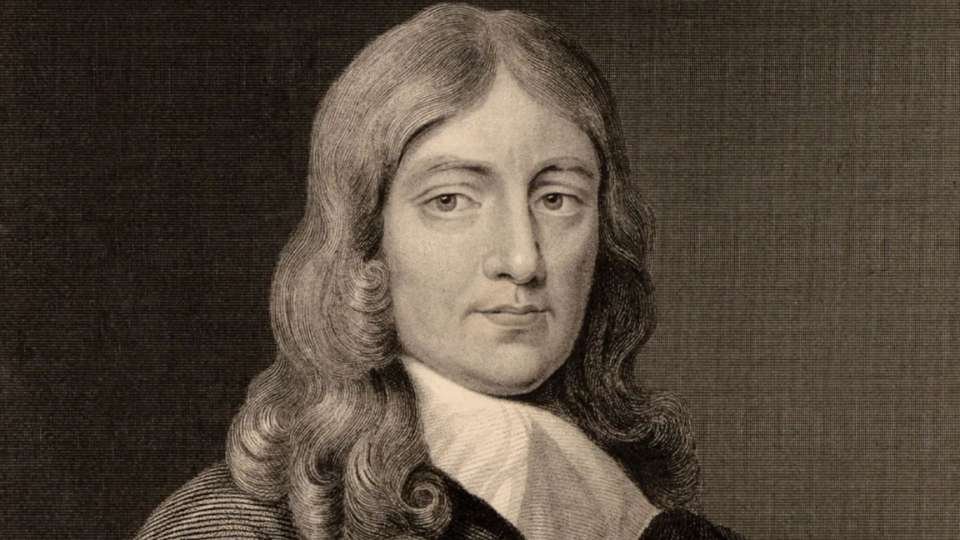
John Milton was an English poet, polemicist, and civil servant who lived during the 17th century. He is considered one of the greatest poets in the English language and his works have had a significant impact on literature and culture.
Biography
Milton was born in London in 1608. He attended Christ’s College, Cambridge, where he studied classical literature and developed an interest in poetry. After completing his education, he worked as a private secretary and later as a civil servant in the Commonwealth government under Oliver Cromwell. He lost his sight in the later years of his life but continued to write. He died in 1674.
Overview of his poetry
Milton’s poetry is known for its grandeur, its use of classical allusions, and its exploration of deep and complex themes. He wrote both epic poetry, such as “Paradise Lost” and “Paradise Regain,” and shorter poems, such as “Lycidas” and “On the Morning of Christ’s Nativity.” His poetry is also known for its political and religious themes, as well as its exploration of the human condition.
Famous works and quotes
Milton’s most famous work is “Paradise Lost,” an epic poem that tells the story of the fall of man and the rebellion of Satan. He is also known for “Paradise Regained” and “Samson Agonistes” which depict the biblical figures of Jesus and Samson respectively. Some of his most famous quotes include “The mind is its own place, and in itself can make a heaven of hell, a hell of heaven,” and “Death is the golden key that opens the palace of eternity.”
Milton’s works continue to be studied and admired for their beauty, complexity, and insight into human nature. His influence can be seen in the works of many poets and writers who came after him, and his legacy continues to be an important part of English literary history.
Samuel Taylor Coleridge
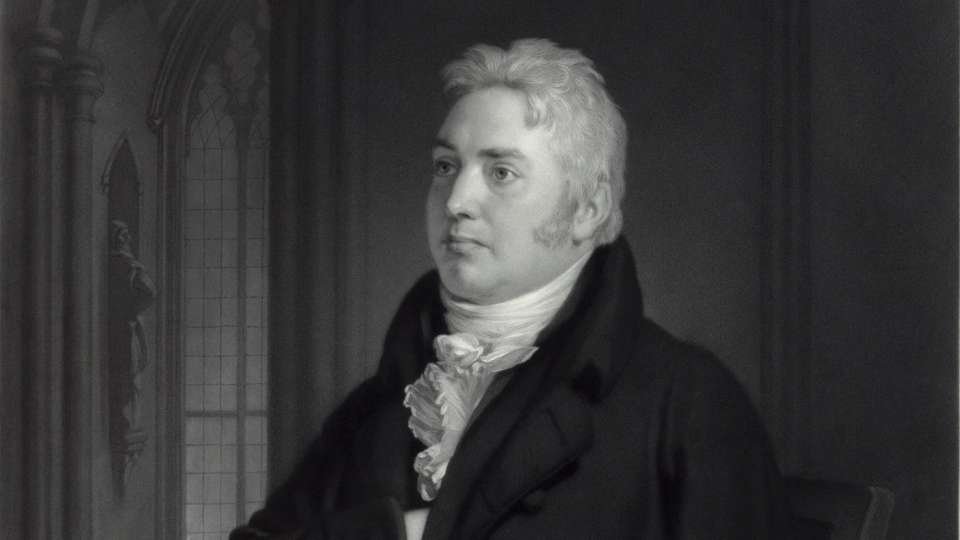
Samuel Taylor Coleridge was an English poet, literary critic, and philosopher who lived during the late 18th and early 19th century. He was a major figure in the Romantic movement and his works have had a significant impact on literature and culture.
Biography
Coleridge was born in 1772 in Devonshire, England. He attended Jesus College, Cambridge, but did not graduate. He later worked as a poet, literary critic, and lecturer. He was known for his drug addiction and ill health. He died in 1834.
Overview of his poetry
Coleridge’s poetry is known for its vivid imagery, its exploration of the supernatural, and its focus on the inner life of the poet. He wrote both long and short poems, such as “The Rime of the Ancient Mariner” and “Kubla Khan.” His poetry is also marked by his interest in the supernatural, his fascination with the natural world, and his deep engagement with the human psyche.
Famous works and quotes
Coleridge’s most famous works include “The Rime of the Ancient Mariner,” “Kubla Khan,” “Christabel” and “The Nightingale.” He is also known for his famous quotes like “The happiness of life is made up of minute fractions – the little, soon forgotten charities of a kiss, a smile, a kind look, a heartfelt compliment in the disguise of a playful raillery,” and “Hence in a season of calm weather Though inland far we be, Our Souls have sight of that immortal sea which brought us hither.”
Coleridge’s works continue to be studied and admired for their beauty, originality, and insight into human nature. His influence can be seen in the works of many poets and writers who came after him, and his legacy continues to be an important part of English literary history.
William Wordsworth

William Wordsworth was an English poet who, along with Samuel Taylor Coleridge, helped launch the Romantic Age in English literature with the 1798 publication of “Lyrical Ballads”. He was a major figure in the Romantic movement and his works have had a significant impact on literature and culture.
Biography
William Wordsworth was born in 1770 in Cockermouth, Cumbria, England. He was the second of five children of John Wordsworth and Ann Cookson. He was educated at St John’s College, Cambridge, but did not graduate. He traveled extensively in Europe and settled in the Lake District of England, where he lived for the rest of his life. He died in 1850.
Overview of his poetry
Wordsworth’s poetry is known for its focus on the beauty of nature, its celebration of the ordinary and the everyday, and its exploration of the inner life of the poet. He wrote both long and short poems, such as “The Prelude” and “Tintern Abbey.” His poetry is also marked by his interest in the natural world, his fascination with the beauty of the common people, and his deep engagement with the human psyche.
Famous works and quotes
William Wordsworth’s most famous works include “Lyrical Ballads”, “The Prelude”, “Tintern Abbey” and “I Wandered Lonely as a Cloud”. He is also known for his famous quotes like “The Child is father of the Man,” and “A host of golden daffodils”
Wordsworth’s works continue to be studied and admired for their beauty, originality, and insight into human nature. His influence can be seen in the works of many poets and writers who came after him, and his legacy continues to be an important part of English literary history.
Lord Byron
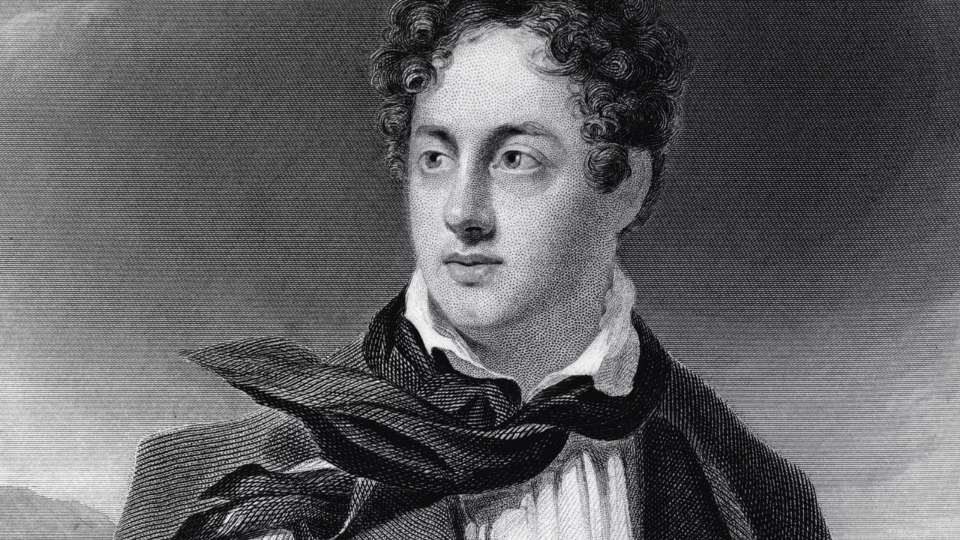
Lord Byron, also known as George Gordon Byron, was an English poet, peer, and politician who lived during the late 18th and early 19th century. He was one of the leading figures of the Romantic movement and his works have had a significant impact on literature and culture.
Biography
Lord Byron was born in London in 1788. He inherited his title and estates from his great-uncle. He attended Harrow School and Trinity College, Cambridge. He was known for his charismatic personality, his good looks, and his scandalous personal life. He traveled extensively throughout Europe and died in 1824 at the age of 36 while fighting for Greek independence.
Overview of his poetry
Lord Byron’s poetry is known for its focus on romantic love and passion, its exploration of the darker aspects of human nature, and its use of satire and irony. He wrote both long and short poems, such as “Childe Harold’s Pilgrimage” and “Don Juan”. His poetry is also marked by his interest in the exotic and the mysterious, his fascination with the darker aspects of human nature, and his deep engagement with the human psyche.
Famous works and quotes
Lord Byron’s most famous works include “Childe Harold’s Pilgrimage,” “Don Juan,” “She Walks in Beauty,” and “So, we’ll go no more a roving”. He is also known for his famous quotes like “I love not man the less, but Nature more,” and “I awoke one morning and found myself famous.”
Lord Byron’s works continue to be studied and admired for their beauty, originality, and insight into human nature. His influence can be seen in the works of many poets and writers who came after him, and his legacy continues to be an important part of English literary history.
Percy Bysshe Shelley
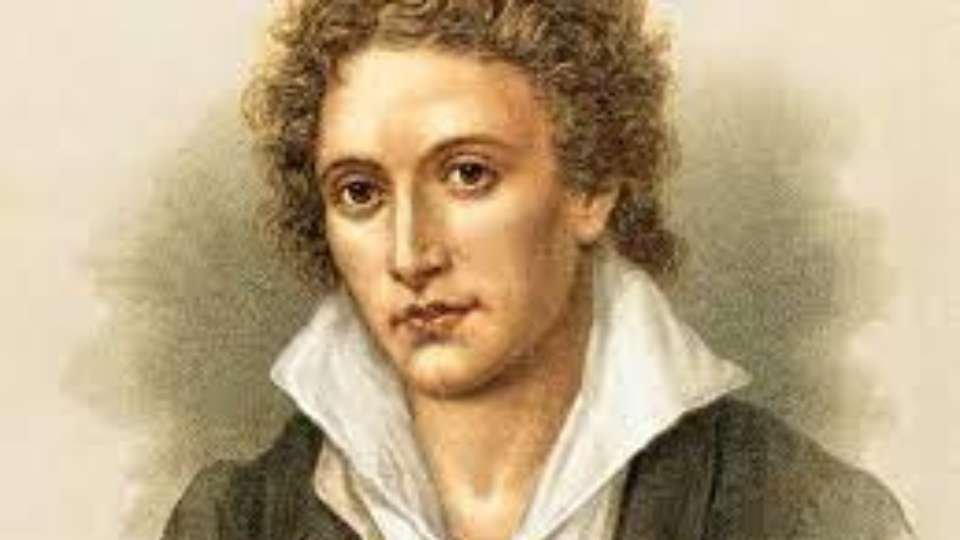
Percy Bysshe Shelley was an English poet and one of the leading figures of the Romantic movement during the early 19th century. His works are known for their beauty, idealism, and their exploration of the human condition.
Biography
Percy Bysshe Shelley was born in Sussex, England, in 1792. He was educated at Eton College and University College, Oxford, but was expelled from the latter for publishing a pamphlet advocating atheism. He later traveled extensively throughout Europe, where he met and collaborated with other leading literary figures of the day. He drowned in 1822 at the age of 29 while sailing off the coast of Italy.
Overview of his poetry
Shelley’s poetry is known for its idealism, its focus on the beauty of nature, and its exploration of the human condition. He wrote both long and short poems, such as “Prometheus Unbound” and “Ode to the West Wind.” His poetry is also marked by his interest in politics and social issues, his fascination with the natural world, and his deep engagement with the human psyche.
Famous works and quotes
Percy Bysshe Shelley’s most famous works include “Prometheus Unbound,” “Ode to the West Wind,” “Adonais,” and “To a Skylark”. He is also known for his famous quotes like “Poets are the unacknowledged legislators of the world,” and “A poet is a nightingale, who sits in darkness and sings to cheer its own solitude with sweet sounds.”
Shelley’s works continue to be studied and admired for their beauty, idealism, and insight into human nature. His influence can be seen in the works of many poets and writers who came after him, and his legacy continues to be an important part of English literary history.
John Keats
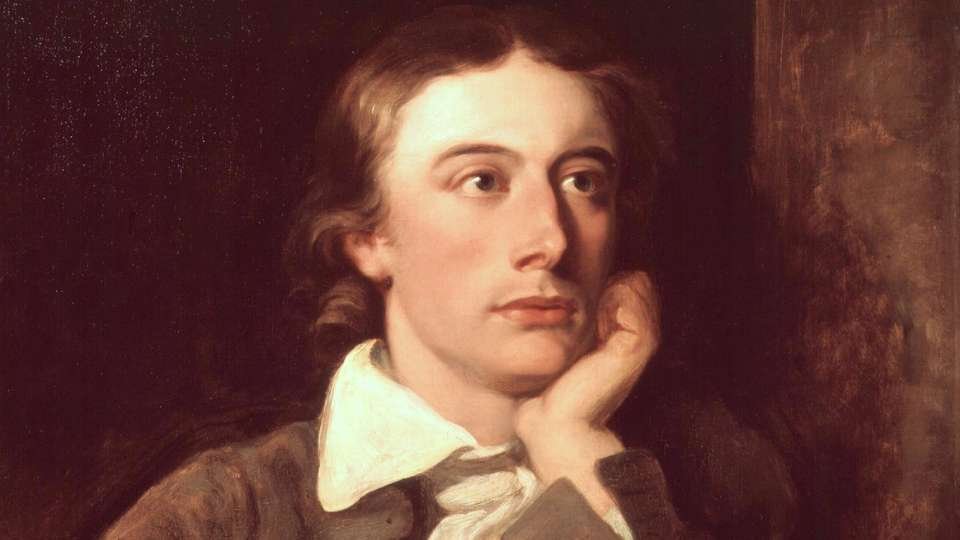
John Keats was an English poet who is considered one of the most important figures of the Romantic movement. His works are known for their vivid imagery, powerful emotions, and their exploration of the beauty and transience of life.
Biography
John Keats was born in London in 1795. He was the eldest of four siblings, and his father died when he was eight years old. He attended Enfield School and later apprenticed as an apothecary, but he later decided to pursue a career as a poet. He died of tuberculosis in 1821 at the age of 25.
Overview of his poetry
Keats’ poetry is known for its vivid imagery, powerful emotions, and its exploration of the beauty and transience of life. He wrote both long and short poems, such as “Endymion” and “Ode to a Nightingale.” His poetry is also marked by his interest in classical literature, his fascination with the natural world, and his deep engagement with the human condition.
Famous works and quotes
John Keats’ most famous works include “Endymion,” “Ode to a Nightingale,” “Ode to a Grecian Urn,” and “To Autumn”. He is also known for his famous quotes like “A thing of beauty is a joy forever,” and “I am certain of nothing but the holiness of the Heart’s affections and the truth of Imagination.”
Keats’ works continue to be studied and admired for their beauty, originality, and insight into the human condition. His influence can be seen in the works of many poets and writers who came after him, and his legacy continues to be an important part of English literary history.
Emily Dickinson
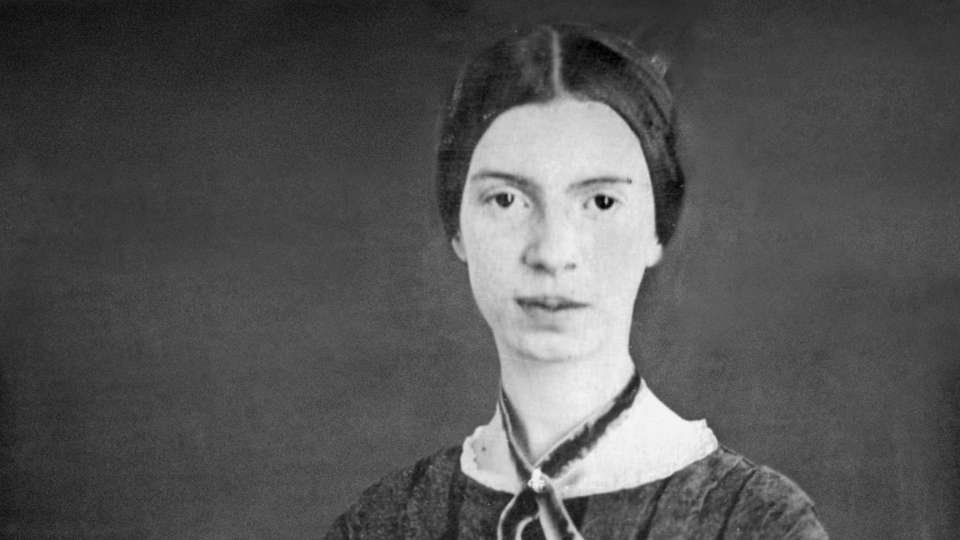
Emily Dickinson was an American poet who lived during the mid-19th century. Her poetry is known for its originality, its wit and its exploration of the inner life of the poet. Despite her reclusiveness, her poetry was popular during her lifetime, and her fame has only grown in the years since her death.
Biography
Emily Dickinson was born in Amherst, Massachusetts in 1830. She was the second of three children of Edward Dickinson and Emily Norcross Dickinson. She attended Mount Holyoke Female Seminary but withdrew after one year. She spent most of her life living in the family home, and wrote poetry throughout her life, but only a small number of her poems were published during her lifetime. She died in 1886.
Overview of her poetry
Emily Dickinson’s poetry is known for its unique style, its wit, and its exploration of the inner life of the poet. Her poetry is characterized by its use of unconventional capitalization and punctuation, as well as its focus on nature and death. She wrote both long and short poems, such as “Because I could not stop for Death” and “I taste a liquor never brewed.”
Famous works and quotes
Emily Dickinson’s most famous works include “Because I could not stop for Death,” “I taste a liquor never brewed,” “I’m nobody! Who are you?” and “Hope is the thing with feathers”.
Robert Frost

Robert Frost was an American poet who lived during the late 19th and early 20th century. He is considered one of the greatest poets in American literature and his works are known for their simplicity, depth, and their exploration of the natural world.
Biography
Robert Frost was born in San Francisco, California, in 1874. He was the eldest of six children of Isabelle Moodie and William Prescott Frost Jr. He attended Dartmouth College and later Harvard University, but did not graduate. He spent most of his life in New England and his poetry is heavily influenced by the landscape and culture of the region. He died in 1963.
Overview of his poetry
Robert Frost’s poetry is known for its simplicity, depth, and its exploration of the natural world. He wrote both long and short poems, such as “The Road Not Taken” and “Stopping by Woods on a Snowy Evening.” His poetry is also marked by his interest in the natural world, his fascination with the beauty of the common people, and his deep engagement with the human psyche.
Famous works and quotes
Robert Frost’s most famous works include “The Road Not Taken,” “Stopping by Woods on a Snowy Evening,” “Mending Wall,” and “Birches.” He is also known for his famous quotes like “Two roads diverged in a wood, and I—I took the one less traveled by,” and “A poem begins as a lump in the throat, a sense of wrong, a homesickness, a lovesickness.”
T.S. Eliot
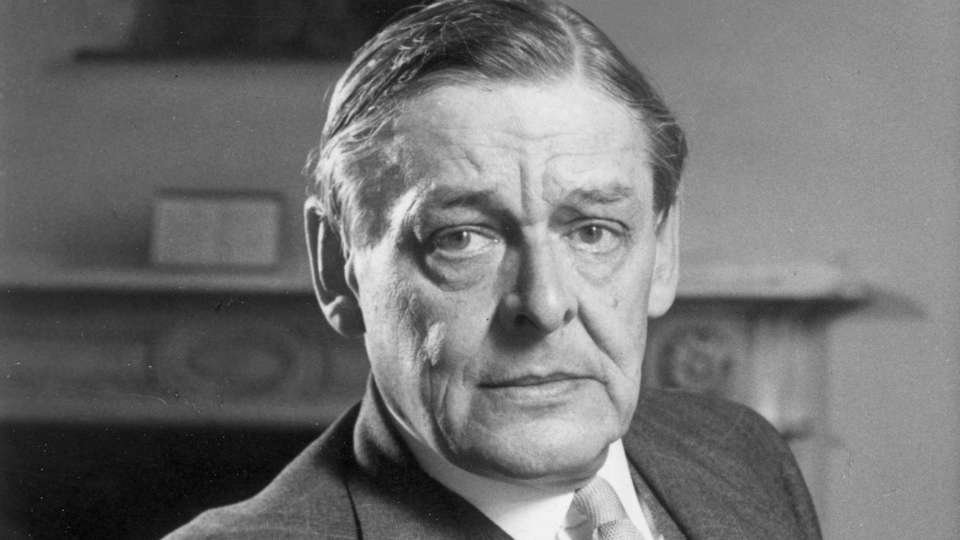
T.S. Eliot was an American-British poet, playwright, and literary critic who lived during the late 19th and early 20th century. He is considered one of the most important poets of the 20th century and his works have had a significant impact on literature and culture.
Biography
T.S. Eliot was born in St. Louis, Missouri, in 1888. He was the seventh of eleven children of Henry Ware Eliot and Charlotte Stearns Eliot. He attended Harvard University and later studied at the Sorbonne in Paris and Merton College, Oxford. He moved to England in 1914 and became a British citizen in 1927. He died in 1965.
Overview of his poetry
T.S. Eliot’s poetry is known for its modernist style, its use of fragmentation and stream of consciousness, and its exploration of the human condition. He wrote both long and short poems, such as “The Waste Land” and “The Love Song of J. Alfred Prufrock.” His poetry is also marked by his interest in mythology and religion, his fascination with the modern world, and his deep engagement with the human psyche.
Famous works and quotes
T.S. Eliot’s most famous works include “The Waste Land,” “The Love Song of J. Alfred Prufrock,” “Ash Wednesday” and “Four Quartets”. He is also known for his famous quotes like “April is the cruellest month,” and “Do I dare?”
T.S. Eliot’s works continue to be studied and admired for their innovation, originality, and insight into the human condition. He was awarded the Nobel Prize in Literature in 1948 and his influence can be seen in the works of many poets and writers who came after him, and his legacy continues to be an important part of literary history.
W.H. Auden
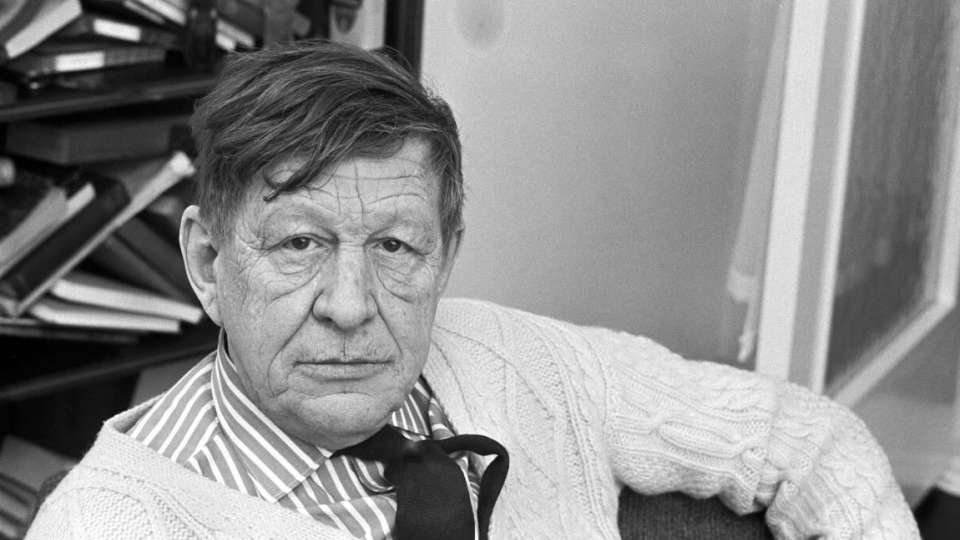
W.H. Auden was an Anglo-American poet, playwright, and literary critic who lived during the 20th century. He was a leading voice of the modernist movement and his works have had a significant impact on literature and culture.
Biography
W.H. Auden was born in York, England, in 1907. He was the third of three sons of George Augustus Auden, a physician, and Constance Rosalie Auden, née Bicknell. He was educated at Oxford University and later moved to the United States, where he became an American citizen in 1946. He died in 1973.
Overview of his poetry
W.H. Auden’s poetry is known for its modernist style, its exploration of social and political issues, and its use of irony and wit. He wrote both long and short poems, such as “The Shield of Achilles” and “Stop all the Clocks.” His poetry is also marked by his interest in the human condition, his fascination with the modern world, and his deep engagement with the human psyche.
Famous works and quotes
W.H. Auden’s most famous works include “The Shield of Achilles,” “Stop all the Clocks,” “Musée des Beaux Arts,” and “In Memory of W.B. Yeats.” He is also known for his famous quotes like “A culture is no better than its woods,” and “We are here on Earth to do good to others. What the others are here for, I don’t know.”
W.H. Auden’s works continue to be studied and admired for their originality, wit, and insight into the human condition. His influence can be seen in the works of many poets and writers who came after him, and his legacy continues to be an important part of literary history.
Sylvia Plath
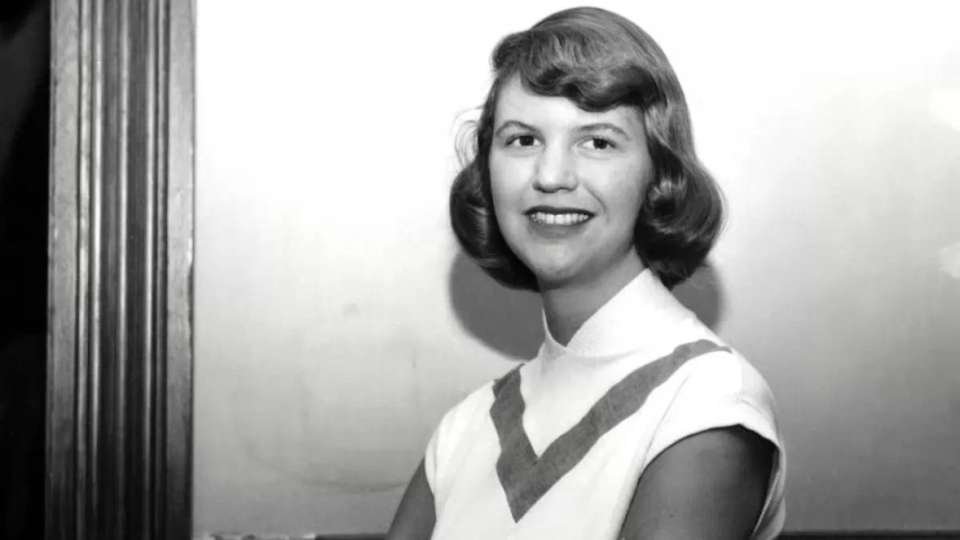
Sylvia Plath was an American poet and novelist, who was known for her confessional poetry and her novel, The Bell Jar. She lived during the mid-20th century and her works have had a significant impact on literature and culture.
Biography
Sylvia Plath was born in Boston, Massachusetts, in 1932. She was the daughter of Aurelia Schober Plath and Otto Emil Plath. She attended Smith College and later Cambridge University on a Fulbright scholarship. She married the British poet Ted Hughes in 1956. She died by suicide in 1963.
Overview of her poetry
Sylvia Plath’s poetry is known for its confessional style, its exploration of personal experiences and emotions, and its use of vivid imagery. She wrote both long and short poems, such as “Lady Lazarus” and “Daddy”. Her poetry is also marked by her interest in the human condition, her fascination with the darker aspects of human nature, and her deep engagement with the human psyche.
Famous works and quotes
Sylvia Plath’s most famous works include “Lady Lazarus,” “Daddy,” “The Bell Jar,” and “Ariel”. She is also known for her famous quotes like “I am the arrow, / The dew that flies / Suicidal, at one with the drive / Into the red / Eye, the cauldron of morning,” and “The blood jet is poetry.”
Sylvia Plath’s works continue to be studied and admired for their originality, raw emotion, and insight into the human condition. Her influence can be seen in the works of many poets and writers who came after her, and her legacy continues to be an important part of literary history.
Check out our blog post on the top writers in Hindi
Conclusion
In this blog post, we have explored the lives and works of some of the most famous poets in English literature. We have discussed the biographies, poetry and famous works and quotes of William Shakespeare, John Milton, Samuel Taylor Coleridge, William Wordsworth, Lord Byron, Percy Bysshe Shelley, John Keats, Emily Dickinson, Robert Frost, T.S. Eliot, W.H. Auden, and Sylvia Plath.
Each of these poets has made a significant contribution to the world of literature, and their works continue to be studied and admired for their beauty, originality, and insight into the human condition. From Shakespeare’s plays to Emily Dickinson’s unique style, these poets have left a lasting legacy in the world of literature.
We recommend further reading of these poets’ works, as well as exploring other poets from different time periods and cultures to gain a broader understanding and appreciation of poetry. It’s also worth reading the criticism, biographies and letters of these poets to gain a deeper understanding of their work and the context in which it was written.
We hope that this blog post has provided an enjoyable introduction to some of the most famous poets in English literature, and that it has inspired you to explore their works further.
Source: Wikipedia
